Humane Society International
Region: Latin America
Humane Society International
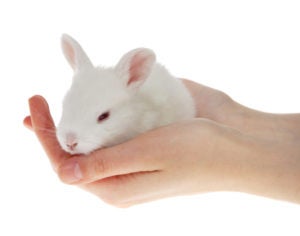
Chile is in the running to become the second South American country to prohibit animal testing for cosmetics following introduction of a federal bill in late December which, if passed, would prohibit new animal testing of both finished cosmetics and their ingredients, and severely restrict the import or sale of beauty products developed with reliance on new animal testing carried out anywhere in the world. Bill 13.966-11 was introduced by Deputy Vlado Mirosevic in close cooperation with HSI and our Chilean partner Te Protejo, with bipartisan support of government and opposition parliamentarians, as well as from several leaders in the beauty sector and cruelty-free domestic brands.
“We commend Deputy Vlado Mirosevic for his leadership in introducing a bill that will close the door on cruel cosmetics in Chile,” said Aviva Vetter, HSI cosmetics program manager for research & toxicology. “This bill brings us one step closer to ending animal suffering in the global beauty industry.”
Through the Animal-Free Safety Assessment (AFSA) Collaboration coordinated by HSI, leading brands are able to work behind the scenes with HSI and our partners to agree bill language, which can expedite movement of bills through the political process. The next step for the Chilean bill is review by the Health Commission in the Chamber of Deputies.
Since the launch of the 2017 Chilean branch of HSI’s global campaign to end cosmetic animal testing, HSI and Te Protejo have worked in close cooperation with decision makers to bring the country in line with the global cruelty-free trend. A 2019 public opinion poll by Inside Research on behalf of HSI and Te Protejo found that 74% of Chileans agree that testing cosmetics on animals is not worth the animals’ pain and suffering, and to date more than 100,000 Chileans have signed our petition supporting a ban.
The Henry Spira Humane Corporate Progress Award honors the Italian food group for its global cage-free policy
Humane Society International
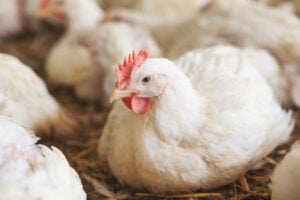
SÃO PAULO—Italian food group Barilla, the world’s largest pasta manufacturer, is the recipient of the Henry Spira Humane Corporate Progress Award, recognition given to companies that adopt policies that have a significant positive impact on the farm animals in their supply chains. Humane Society International, one of the largest animal protection organizations in the world, had nominated Barilla for the award, which is given by the Humane Society of the United States, HSI’s sister organization. With the award, both organizations recognize and celebrate Barilla’s transition to responsible sourcing of cage-free eggs in its global supply chain. Barilla is one of only a handful of companies in the world to achieve a 100% cage-free egg supply chain ahead of schedule.
HSI’s first contact with Barilla was in late 2016, and in just a matter of months the Italian company committed to exclusively sourcing eggs from cage-free hens and achieved full implementation of that commitment in 2019, one year before its publicly announced 2020 deadline. Exemplifying leadership in transparency, Barilla provided yearly progress updates on its egg sourcing statistics in its annual sustainability report. Barilla’s global policy applies to each of the countries in which they operate.
In Brazil, Barilla has played an especially important role as an example for other food companies, which it has publicly encouraged to create and implement cage-free egg policies. “Barilla’s leadership has inspired other companies in Brazil to embrace animal welfare and cage-free egg supply as a core element of responsible sourcing. Now we have over 100 companies committed to sourcing exclusively cage-free eggs in the country, and the number keeps growing. We hope that with Barilla’s great example, other companies will be inspired to follow suit. We have no doubt that the future is cage-free in Brazil,” noted Maria Fernanda Martin, HSI’s corporate policy and program manager for farm animals in Brazil.
At every stage, Barilla demonstrated a clear mission and vision, embraced at every level of the company and backed by its leadership through active and ongoing engagement with producers and consumers. HSI strongly supported Barilla’s transition to cage-free, facilitating farm tours, technical workshops, and peer-to-peer learning.
Animal welfare initiatives are part of Barilla’s global goals. According to Fabiana Araújo, marketing manager for Barilla in Brazil: “Receiving the Spira Award validates the brand’s efforts to have a sustainable production system. Commitment to innovation has led Barilla to be one of the few companies in the world to reach a production chain with 100% cage-free eggs, and the first company in the industrialized pasta segment in Brazil to adopt a cage-free egg policy.” “We seek to do the right thing in our business model, and that’s what we’ve done here. We benefited from the steady and constructive support of Humane Society International, and our partnership was crucial to Barilla’s early completion of our stated goal. Particularly in Brazil, where we have been present for only a few years, the support of HSI has been critical for success,” said Eldren Paixão, procurement manager for Barilla in Brazil.
Cage-free production systems typically offer hens higher levels of welfare, allowing the birds to express more of their natural behaviors, including moving around, laying eggs in nests, perching, and fully spreading their wings.
In celebration of Barilla’s journey and collaboration with HSI, the organization will host the 4th meeting of the South American Animal Welfare Movement, an online seminar on October 5 -9 for companies, producers, and investors. The seminar will feature practical insights on the benefits of adopting higher animal welfare practices and provide stakeholders with meaningful and applicable guidance on transitioning to cage free egg and crate free pork supplies. For more information and registration, please email mfmartin@hsi.org.
The Henry Spira Awards recognize significant corporate animal welfare commitments in the memory of Henry Spira (1927-1998), a legendary Belgian-American humane advocate who specialized in constructive engagement with corporations committed to an animal welfare mandate as part of their corporate social responsibility missions. He is considered one of the most effective animal advocates of the 20th century.
ENDS
Media contact for HSI in Brazil:
Maria Fernanda Martin, mfmartin@hsi.org, +55 (11) 9 5770 9922
Media contact for Barilla in Brazil:
4INFLUENCE, Alexandre Spínola | (11) 9.8346-5918, Marília Feliciano ||(11) 9.7637-2500, Amanda Amorim | (11) 9.8146-5850, barilla@4influence.com.br
Families from five municipalities and six SENASA regional offices received food for their dogs and cats
Humane Society International / Latin America
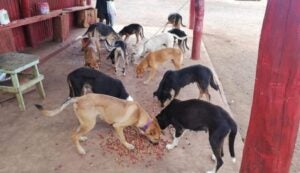
SAN JOSÉ—More than 3,000 dogs and cats who have been affected by the COVID-19 pandemic received food for several weeks, thanks to a donation made by the animal welfare organization Humane Society International/Latin America. This donation is part of Mars, Incorporated’s recent donation to HSI for its global companion animal programs to help dogs and cats affected by the COVID-19 pandemic.
These pets belong to 1,450 families that, due to the health crisis, cannot provide food for their animals. Families were identified in the municipalities of Alajuelita, Curridabat, Desamparados, Santa Ana and Montes de Oca, which have participated in an animal welfare pilot plan with HSI/Latin America since 2017, as well as in six regional offices of the National Animal Health Service (SENASA).
In total, HSI/Latin America and Mars delivered 6,423 kilos (weighing the equivalent of four cars) of dog and cat food.
“Pets are an important part of our families and a source of comfort and affection, particularly in difficult times. That is why, as the world fights against this pandemic, we seek to directly help dogs and cats who suffer as a result of the coronavirus crisis,” said Andrea Borel, executive director of HSI/Latin America.
In addition to the five municipalities of the greater San Jose metropolitan area, the food was distributed in communities through SENASA’s six regional offices: Western Central, Brunca, Chorotega, Huetar Norte, Huetar Caribe and Central Pacific.
“We know that this crisis is directly affecting families, and therefore their pets. We believe that this food donation will be of great help to them and will contribute to alleviating the difficult situation they are experiencing,” said Iliana Cespedes, coordinator of SENASA’s Animal Welfare Program for Small Species.
In addition to this donation for companion animals, HSI also made financial contributions to wildlife centers in Costa Rica, Colombia and Guatemala, in order to alleviate the effects that the pandemic is having on their operations.
Download photos of dogs and cats being fed through the Mars grant.
ENDS
Contact: Alejandra Zúñiga, Humane Society International, (506) 7012-5598 (cell)
Humane Society International / Latin America

SAN JOSE — The global health crisis caused by the novel coronavirus can also affect pets, not only because their owners can get sick, but also because of the ways COVID-19 has changed everyday routines.
For this reason, animal welfare organization Humane Society International recommends that pet owners prepare a pet action plan, in the event that they become ill or require hospital care and are unable to take care of their pets. This plan should include identifying a family member or friend who can care for the animals when their owners cannot do so.
HSI also recommends that people keep pet food in stock for at least two weeks, keep copies of their pets’ vaccine records, document pets’ needs for special care or medication, and ensure that pets wear a collar with an ID tag that includes a telephone number.
“We are experiencing an emergency situation and we must not neglect our pets. We need to be prepared and to have an action plan in case we get sick and cannot take care of them. And, of course, we must follow all hygiene protocols when we interact with them,” said Andrea Borel, executive director of HSI/Latin America.
Such protocols include handwashing before and after interacting with animals, washing and disinfecting their collars, leashes, and other accessories, and avoiding crowded places while exercising or walking them.
The World Health Organization has pointed out that there is no scientific evidence that companion animals like dogs or cats can transmit COVID-19 to humans.
Changes in people’s lifestyles – such as working from home and social isolation – can also affect their pets. “Most pets will be happy that we are working from home, but it is important to maintain their routine (such as set meal times and regular sleep hours), because this is a temporary situation and we do not want to create separation problems when we return to the office once the crisis is over,” Borel added.
Since people are going to be socially isolated, time at home can be used to encourage games and exploration with your dogs — by hiding treats in a room, for example. In the case of cats, their independence should be respected, since they are generally more comfortable being alone.
Media contact: Amanda Chaves, achaves@hsi.org
Indonesia, India, Vietnam among countries where wild animal markets pose a disease risk
Humane Society International / Global
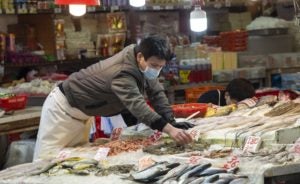
WASHINGTON —Wildlife campaigners across the globe from animal charity Humane Society International have called for an urgent worldwide ban on the wildlife trade after China’s announcement that it will prohibit the buying and selling of wild animals for food in light of the mounting threat associated with coronavirus. The capture, market trade, and butchery of wild animal species for human consumption happens across large parts of Asia and Africa such as Indonesia, India, Vietnam, and West, Central and East Africa, as well as in Latin America, says HSI, posing a very real threat of spreading zoonotic and potentially fatal diseases. Governments around the world must take China’s lead and shut down this trade for good. HSI leadership in South Africa, Nepal, India, South Korea, Canada, the United States, Australia, Guatemala, Sri Lanka, Vietnam, the United Kingdom, Honduras, El Salvador and Costa Rica have joined the call for global action.
Jeffrey Flocken, HSI president, says: “China has taken decisive action to halt the wildlife trade for human consumption implicated in the global coronavirus crisis, but it would be a grave mistake for us to think that the threat is isolated to China. The capture and consumption of wild animals is a global trade that causes immense suffering for hundreds of thousands of animals every year, including endangered wildlife species being traded to the brink of extinction. The trade can also spawn global health crises like the current coronavirus, Severe Acute Respiratory Syndrome and the deadly bird flu. Wildlife markets across the globe, but particularly in Asia and Africa, are widespread and could easily be the start of disease outbreaks in the future.”
In the north eastern states of India, wild species such as the Chinese pangolin and several species of wild birds are routinely sold for human consumption. Bengal monitor lizard meat is also consumed across India, driven mainly by the superstitious belief that the fat stored in the tail can cure arthritis, and meat from the Indian flap-shell turtle is also popular across the country, despite both species being listed under Schedule 1 of the Wildlife Protection Act, 1972. In some north Indian states, owl eyes are also consumed for their perceived medicinal benefits for human vision.
Indonesia also has hundreds of “extreme” animal markets where the conditions are the same as those described by scientists as the perfect breeding ground for new and deadly zoonotic viruses, such as coronaviruses. Wild animals are sold and slaughtered in public and unsanitary conditions. The trade takes place alongside that of dogs and cats which itself has already been shown to pose a risk of rabies transmission. In January this year, Humane Society International wrote to Indonesia’s President Joko Widodo as part of the Dog Meat Free Indonesia coalition, calling for urgent measures to ensure that Indonesia does not become the next point of origin of a deadly virus by tackling the risk posed by these animal markets.
Mr. Flocken adds: “We already know that dog and cat meat markets in Indonesia are a hotbed for disease transmission, and we also know from our investigations that rabies-positive dogs are being sold and slaughtered for consumption in these markets. Given that dogs are caged and slaughtered alongside wild animals such as snakes, bats and rats, Indonesia must surely take preventative measures now to ensure it does not become the next point of origin of a deadly virus. Similar risks can be observed in wild animal markets across the globe and especially in Asia and Africa. The trade in wildlife is a global crisis that calls for global action, now.”
Wild meat consumption is also an issue in Vietnam where wild pig, goat and bird species are eaten as well as softshell turtle, bear, snake, pangolin and civet, and snake wine is also consumed. A number of studies conducted in recent years reveal that a significant percentage of the Vietnamese population consumes wild animals.
Bush meat, including that derived from primates, is still consumed in many parts of Africa. Earlier this month, the Tanzanian government endorsed the establishment of butcheries specifically for the bushmeat trade. And in South Africa, approximately 12,000 lions are captive bred in deplorable conditions, to facilitate the export of lion skeletons to Southeast Asia for tiger bone wine. Lions are hosts for the tuberculosis (TB) virus, which can survive in bones ground to powder.
In Guatemala and El Salvador, meat from crocodile, iguana and other reptiles is often eaten during Lent despite it being illegal to do so.
This week, the National People’s Congress, the Chinese national legislature, elevated an originally temporary ban on wildlife trade for human consumption from an administrative action to the level of a national law. Specifically, the announcement, issued as an emergency measure, creates a comprehensive ban on the trade in terrestrial wild animals bought and sold for food, including those who are bred or reared in captivity.
Download video footage of Indonesia’s wild animal and dog/cat meat markets here: https://www.dropbox.com/home/Indonesia%20Extreme%20Markets
ENDS
Media contact: Wendy Higgins whiggins@hsi.org
Humane Society International / Global
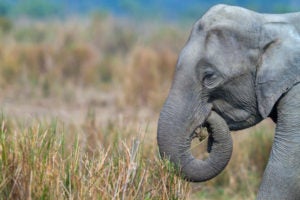
Gandhinagar — Representatives from more than 130 nations agreed to vital protections for migratory wild species at what’s being hailed as a landmark wildlife convention in Gandhinagar, India. Delegates agreed to increased or first-time conservation protection status for the endangered Mainland Asian elephant, the critically endangered great Indian bustard and Bengal florican, the jaguar, the oceanic whitetip shark, smooth hammerhead and tope shark. The circumstances of all of these species, require multi-nation conservation co-operation because their ranges traverse country boundaries.
Sixty percent of Mainland Asian elephants are found in India, and the species has been listed as Endangered in the International Union for Conservation of Nature (IUCN) since 1986, a victim of habitat loss and increasing human/elephant conflict. The great Indian bustard, whose population has dwindled to around 150 individuals in India, is persecuted by hunting in Pakistan, and the Bengal florican has a population of less than 1000 birds, struggling to survive amidst habitat loss in India and Nepal.
Mark Simmonds OBE, senior marine scientist at Humane Society International, said: “With estimates of up to one million species at risk of extinction right now, nations have a shared responsibility to act, especially in the case of migratory species. Species such as the Asian elephant and hammerhead shark are in desperate need of attention and cooperation from the countries through which they roam, mate, give birth or feed. This truly is proving to be a landmark wildlife convention because we’ve successfully secured increased conservation protection status for many species and we can now set to work on concrete measures to protect them and their habitats.
The Asian elephant is endangered throughout much of its range, trying to survive in continually shrinking, degraded and fragmented habitat, and increasingly coming into conflict with people. Its protection will be vastly improved if range countries work together to tackle these challenges, and inclusion in CMS Appendix I will significantly aid that.”
Rebecca Regnery, Humane Society International’s deputy director of wildlife, said: “The jaguar, the largest native cat of the Americas, is now absent from more than 77% of its historic range in Central America. Despite protection in all its range states, the jaguar is threatened by illegal killing and trade. Listing on CMS will formalize range state collaboration on conservation efforts, creating an international legal framework for the first time. This will provide increased incentives and funding opportunities for this work, which is critical for curbing habitat destruction, maintaining key migration corridors and reducing violence and human deaths associated with retaliation and trafficking.”
Lawrence Chlebeck, marine biologist with HSI Australia, said, “This is a fantastic success for international shark conservation efforts. Three of the shark species hardest hit by commercial fishing will, from today, receive brand new international attention and coordination. Sharks are especially susceptible to population decline due to late maturation and low reproductive potential, and they are therefore some of the most threatened animals on our planet. International, cooperative conservation measures, such as those that will result from these listings, are absolutely vital to the ecological viability and survival of these species.”
Summary of key decisions today at CMS CoP 13
- Mainland Asian elephant/Indian elephant (Elephas maximus indicus) added to Appendix I
- Great Indian bustard and Bengal florican added to Appendix I
- The jaguar (Panthera onca) added to Appendices I and II
- The antipodean albatross (Diomedea antipodensis) added to Appendix I
- Oceanic whitetip shark (Carcharhinus longimanus) added in Appendix I
- Smooth hammerhead shark (Sphyrna zygaena) added to Appendix II
- Tope shark (Galeorhinus galeus) added to Appendix II.
These decisions have been made in the convention’s ‘Meeting in the Whole’ and are subject to formal verification in the closing plenary of the CoP on 22nd February. However, as they have been agreed by consensus, this is now a formality.
ENDS
Media contact: Wendy Higgins whiggins@hsi.org
Humane Society International / Global
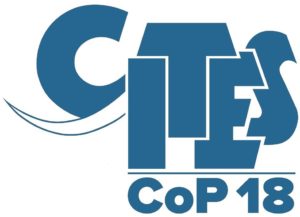
GENEVA—Tropical rainforests in Central America will continue to be plundered for tiny translucent glass frogs to supply the pet trade in Europe and elsewhere, after a proposal for international trade controls failed at the Conference of the Parties to the UN Convention on International Trade in Endangered Species (CITES), largely due to the 28 countries in the European Union voting against protections. Glass frogs have become popular in the pet trade due to their unique transparent skin which shows their internal organs. The proposal to give glass frogs Appendix II protection lost by just one vote, and animal protection charity Humane Society International hopes there may yet be a chance to secure the necessary votes in plenary later this week.
The European Union is a key destination for amphibian and reptile species such as glass frogs, iguanas and geckos—animals that are popular in the exotic pet trade. This trade is often illegal and, even when it is legal, is harmful to wild populations. More than 30,000 live reptiles were confiscated from the EU between 2001 and 2010, and glass frogs are regularly sold on the internet and at reptile and amphibian fairs in Europe. Yet, despite the European Union’s role as a major consumer of glass frogs, the voting bloc failed to support protections for animals negatively impacted by European demand.
The proposal from Costa Rica, El Salvador and Honduras to give trade protections to 104 species of glass frogs received overwhelming support from the majority of other countries that are home to the species in Latin America, but failed to reach the 2/3 majority required to be successful. It was opposed by the 28 countries in the EU.
Grettel Delgadillo, deputy director of Humane Society International/Latin America, says: “The international pet trade threatens the very survival of glass frogs and many newt species such as the crocodile newt and Asian warty newt, which are also collected for food. Glass frogs are astonishingly beautiful, almost entirely transparent creatures which is why they have soared in popularity in recent years, regularly advertised for sale on the internet for buyers in the United States and Europe. Yet this trade is slowly killing off populations so it is a major blow to conservation efforts on the ground and around the world that CITES parties failed to better protect these creatures. This failure is in large part due to the European Union’s shameful opposition; the EU is a huge consumer of glass frogs for the pet trade and therefore directly contributes to this species’ demise.”
A proposal by China, Viet Nam and the European Union seeking to protect 40 currently unlisted newt species also in high demand for the pet trade succeeded.
Humane Society International commends the proponent governments for seeking to bring the greedy pet trade in amphibians under CITES control but regrets the EU did not see fit to give CITES protection to the glass frogs.
The decisions will need to be approved in a plenary session at the CITES meeting on August 27/28.
ENDS
Media contacts:
- At CITES: Brianna Grant, bgrant@hsi.org, +1-202-360-3532
- United Kingdom: Wendy Higgins, whiggins@hsi.org
- United States: Nancy Hwa, 202-596-0808 (cell), nhwa@hsi.org
- Australia: Ben Vozzo +61 450 258 057 ben@hsi.org.au
Humane Society International / Latin America
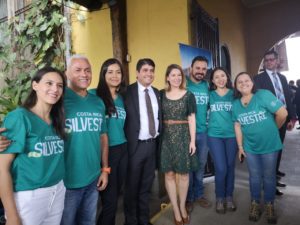
San Jose, Costa Rica – In celebration of Environment Day on June 5, the President of the Republic of Costa Rica, Carlos Alvarado, announced the launch of Costa Rica Silvestre (Wild Costa Rica), a digital platform designed to promote healthy coexistence between humans and wildlife, and to better protect Costa Rica’s biodiversity through greater public awareness and participation. The project was developed jointly by Humane Society International/Latin America (HSI/LA), the Ministry of Environment and Energy and other state institutions along with nongovernmental entities, all of whom were represented at the official event announcing Costa Rica Silvestre.
The platform contains a section called Wild Neighbors that is dedicated to strengthening positive interactions between people and wildlife in urban environments.
The site includes advice for direct interactions with wildlife including, but not limited to:
- Raccoons.
- Opossums.
- Birds.
- Snakes.
- Crocodiles.
Videos that demonstrate the appropriate way to deal with wildlife in urban areas, including appropriate waste management, and no feeding of wild animals.
Finally, the platform includes educational material to raise awareness among children, youth and adults about campaigns and initiatives, legislation, technical and scientific publications and partnership opportunities to support and promote the conservation of wildlife in Costa Rica.
Grettel Delgadillo, deputy director and manager of the Wildlife Program at Humane Society International/Latin America, said, “This project is of the utmost importance because it positions wildlife as a priority in the decision-making process biodiversity and human-wildlife conflict, with a primary goal of ensuring healthy and humane coexistence.”
Costa Rica has an abundant wildlife population, in rural, protected and urban areas. Wild animals live in any environment where food, water and shelter are available, and in the case of urban areas, these resources are obtained directly or indirectly from human beings. When people and wildlife share the same territory, they interact with each other, and these interactions can sometimes raise challenges. Costa Rica Silvestre provides tools and practical advice for citizens to address interactions with wildlife in a responsible and humane way.
The Costa Rica Silvestre project can be accessed via this website.
Humane Society International and its partner organisations together constitute one of the world’s largest animal protection organisations. For more than 25 years, HSI has been working for the protection of all animals through the use of science, advocacy, education and hands on programs. Celebrating animals and confronting cruelty worldwide – on the Web at hsi.org.
Puppy mill operator convicted and sentenced for illegally breeding dogs for sale
Humane Society International / Latin America
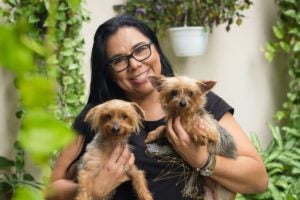
SAN JOSÉ—The Sanctioning Administrative Proceeding Court of the National Animal Health Department (SENASA) of the Ministry of Agriculture and Livestock announced a sentence in favor of animal welfare in Costa Rica, convicting a person who was breeding dogs in a puppy mill. Humane Society International/Latin America worked with SENASA to rescue the dogs in this case.
In November 2017, more than 35 dogs were rescued from a puppy mill named Flora and Fauna in Limón. The dogs included breeds such as French poodle, Maltese, Shih Tzu, Chihuahua, Yorkshire terrier and Pekinese. At the time, they were living in unsanitary conditions and many suffered from health issues such as severe skin problems, alopecia, eye diseases, malformations, periodontal disease and tooth loss.
Amanda Chaves, manager of HSI/Latin America’s companion animal program, said: “No animal should be forced to live in such deplorable conditions as we found these dogs in 2017. We are grateful to SENASA for allowing us to help with the animals’ rescue. We are relieved that the dogs were adopted and now live in homes full of love. We will continue supporting and collaborating with SENASA and other local organizations to improve welfare levels of animals in Costa Rica.”
The majority of the puppy mill’s females were forced to give birth continuously as a means of income for the mill’s operators. After the rescue, the animals were checked by a veterinarian, who found that several of them were pregnant, including some whose lives were at risk due to their advanced age.
Thanks to evidence collected by SENASA, the Sanctioning Administrative Procedure Tribunal was able to demonstrate that the accused illegally bred dogs for sale. The offender was found guilty of the facts and fined approximately ₡645,000 colones, equivalent approximately to the base annual salary of a professional with a university degree.
HSI/Latin America encourages people to adopt companion animals (dogs and cats), instead of buying them at pet stores or from illegal breeding sites. Puppy mills breed animals for trade, focusing solely on economic profit and not on the welfare of the animals. The dogs bred in these places usually live in small wire cages with little to no human interaction, veterinary care or exercise.
Watch a video about Lola and Lulu, two dogs rescued in this case and adopted into a loving home: https://www.facebook.com/HSILatinAmerica/videos/vb.1526638017432247/1645090288920352/?type=2&theater
END
Media contact: Amanda Chaves, achaves@hsi.org, 506 70184621
